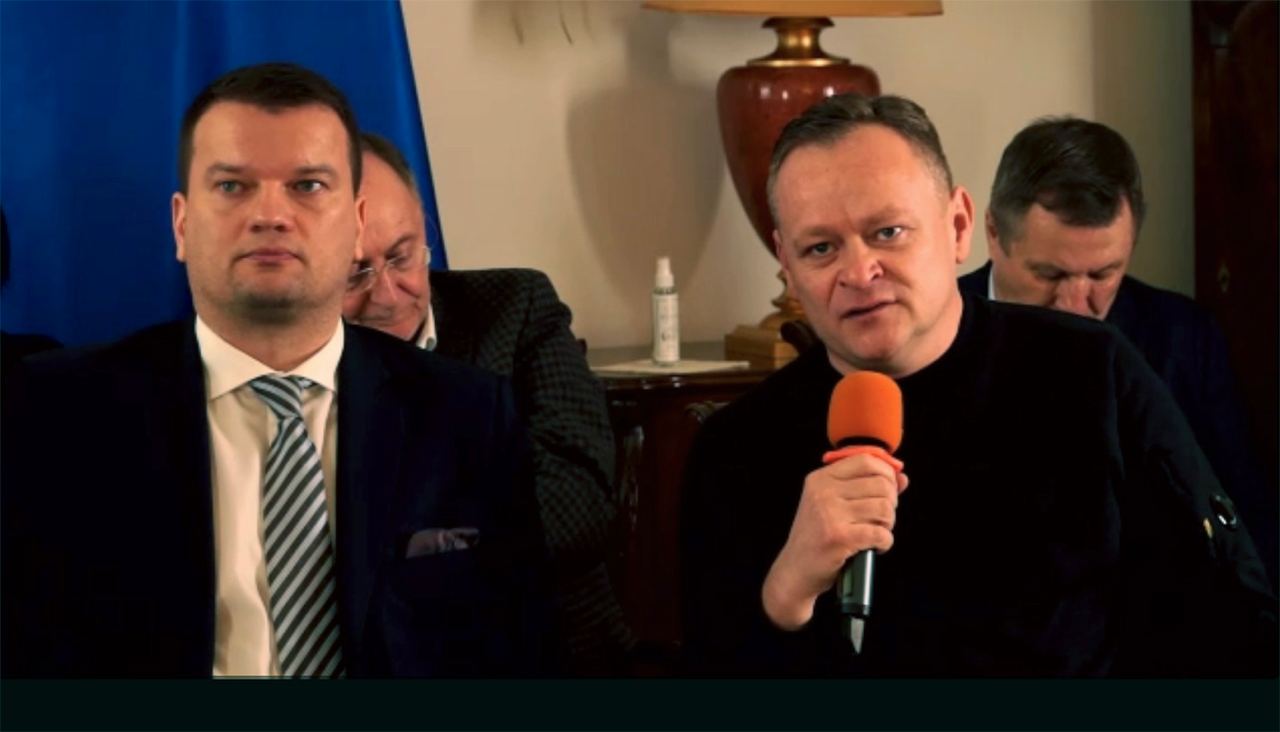
The Head of the Ukrainian Agri Council took part in industry consultations on preparations for the resumption of exports and the restoration of Ukrainian agriculture. The event was organized by the Polish Investment and Trade Agency.
Together with representatives of the relevant ministries of Ukraine and Poland, business representatives of both countries and business associations, we discussed the situation in the agricultural sector of Ukraine: needs and plans for post-war reconstruction.
The head of the UAC emphasized the logistics issue, in particular the importance of the western borders for the Ukrainian agricultural sector. He also proposed to create a logistics corridor for the export of Ukrainian grain through the Lithuania port of Klaipeda, which would reduce the load on Polish ports.
"The issue of logistics for the agricultural sector remains extremely sensitive and one of the priorities, as all we have now is the western border. Grain exports through the border countries create predictable difficulties for European farmers, but they understand that we all have no other choice while the war is on. Together, we can find a solution: introduce EU support for farmers, which is already being discussed at the meetings of the European Parliament and the European Commission, or consider exporting Ukrainian grain through the Lithuania port of Klaipeda, which is currently almost empty," he emphasized.
At the same time, Andriy Dykun spoke about the situation with farms in the occupied territories and the large-scale destruction of farms in Kherson, Mykolaiv, and Kharkiv regions after the de-occupation.
The head of the UAC emphasized that the Ukrainian agricultural sector already needs investment, so it is necessary to create a Marshall Plan. He also invited his Polish colleagues to help with the demining of Ukrainian agricultural areas, and invited local farmers to cooperate and work together.
"Ukraine is now the largest mined area in the world. In the Kherson region alone, about 500,000 hectares of land are considered contaminated, meaning they are mined or partially mined, or there are shell remnants. Together with the State Emergency Service and authorized state representatives, we are working to identify mined areas. In order to clear the land as soon as possible so that farmers can go out into the fields without risking their lives, we need the help of international organizations. If Poland has such specialists and equipment, which we also lack, we invite you to join us," Andriy Dykun addressed the participants of the event.
According to Andriy Dykun, any help is important for the Ukrainian agricultural sector.
"Ukrainians are going to defend their territories, so we need workers. Moreover, we can learn a lot from Polish farmers about processing agricultural products to restore the agricultural sector as soon as possible. I would also like to thank the Polish people for the fact that from the first hours of Russia's full-scale invasion, Ukrainians fleeing the war found refuge and incredible support in Poland. Immediately after the victory, our task will be to bring people back home, and now we are doing everything necessary to support the country's economy in the face of war," said Andriy Dykun.
As a reminder, on January 30-31, 2023, the EU Council of Ministers for Agriculture and Fisheries and the European Parliament's Committee on Agriculture and Rural Development met in Brussels to discuss, among other things, Ukraine's preferential trade regime with the EU.
Poland initiated the discussion of the possibility of abolishing or reducing Ukraine's preferential trade regime with the EU, as the growth of imports created certain problems in the border countries.
The Ukrainian Agri Council in cooperation with the leading agrarian associations appealed to the EU leaders to preserve and indefinitely extend Ukraine's preferential trade regime with the European Union.
Despite the problems for local farmers, especially in the countries bordering Ukraine, which have begun to experience difficulties in selling their products, during the discussion none of the member states put forward initiatives to reduce or create any barriers to Ukrainian agricultural exports, expressing absolute support for Ukraine and Ukrainian farmers. At the same time, EU countries began to investigate how to support European farmers in this emergency situation.
Tuesday, 21 February 2023